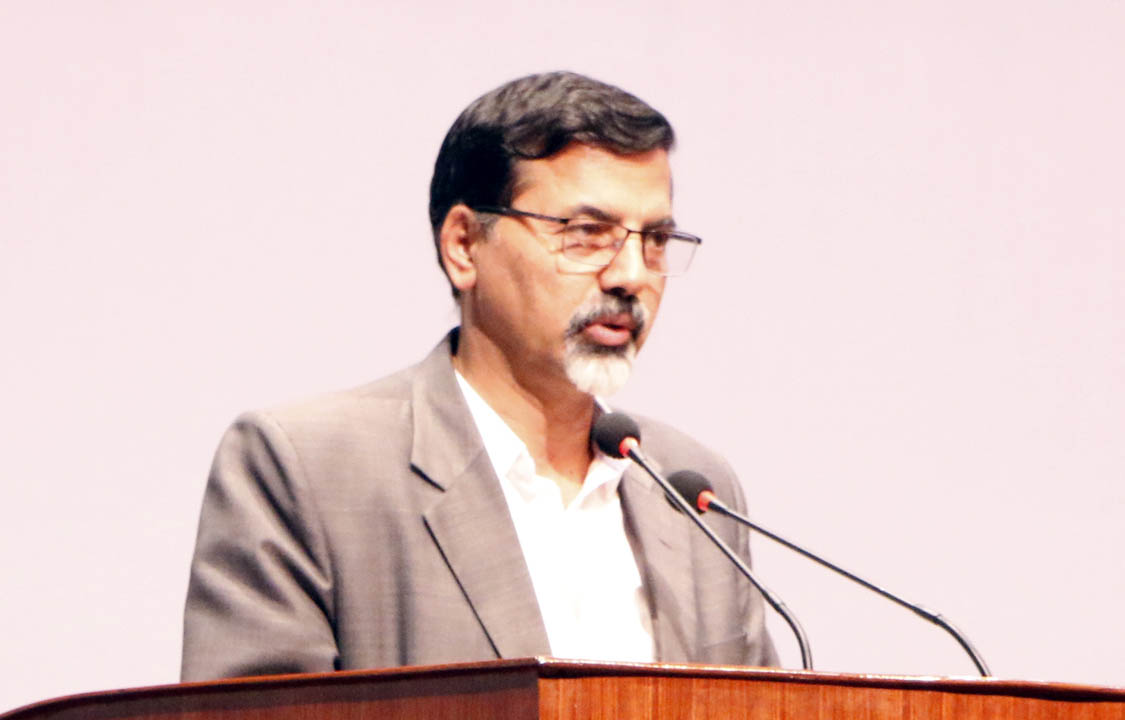‘Transitional justice process draws global attention’
Kathmandu, August 8
Lawmaker of the ruling Nepal Communist Party (NCP) Janardan Sharma today said Nepal’s transitional justice process had drawn global attention, and that the issue should not be neglected.
He said the government was not serious about appointment of commissioners in the Truth and Reconciliation Commission and the Commission on Investigation of Enforced Disappeared Persons.
“Neglecting the issue will leave incomplete the job of addressing conflict victims’ voices, delivering justice to victims, ascertaining truth, and reconciliation,” he said. “Ultimately, the entire peace process will remain incomplete.”
The two commissions have remained vacant ever since their commissioners retired in April. They have collected more than 63,000 complaints on conflict-era rights violations.
The government had formed the selection panel in the last week of March. The panel has been criticised for postponing its decision making time and again, under various pretexts. Victims have charged that the committee is doing nothing but awaiting political consensus on appointment of commissioners in TRC and CIEDP. The committee has collected 57 applications for the post of chairpersons and members of the commissions.
Political parties, especially the NCP, has been embroiled in internal factional feuds, resulting in delay in reaching a consensus. Leaders involved in cross-party talks have said the situation is so worse that dialogue on the matter has come to a grinding halt and they do not see headway anytime soon.
The victims, on the other hand, have demanded that the Transitional Justice Act be amended first in line with Supreme Court’s verdicts, and a fresh and transparent process to appoint commissioners be initiated by reconstituting the selection committee. Four international rights organisations— Amnesty International, International Commission of Jurists, Human Rights Watch, TRIAL International—recently called on the government to suspend the current process of appointment of commissioners in two transitional justice bodies, and initiate a new consultative and transparent process for the same.
They also urged the government to follow through on commitments to amend the Transitional Justice Act in line with Nepal’s international human rights standards and the Supreme Court’s rulings, and adopt and publicise a plan for taking the transitional justice process forward.
According to the apex court’s ruling there should not be amnesty for grave human rights violations such as extra-judicial killing, enforced disappearance, torture, rape and other acts of sexual violence; the statute of limitations for grave offences must be removed; cases recommended by the TRC and the CIEDP must be prosecuted; torture and enforced disappearance must be criminalised through the enactment of laws; cases before court cannot be transferred to the TRC or the CIEDP; dignified and respectable reparation for victims; and reconciliation cannot be made without the consent of victims.
The government has maintained that amendment will be done on the basis of six factors—the Comprehensive Peace Accord; Nepal’s national and international obligations related to human rights; fundamental principles of the transitional justice; decisions and orders of the Supreme Court; sentiments of conflict victims; and Nepal’s legal and political processes.
However, the process has been completely halted now.






